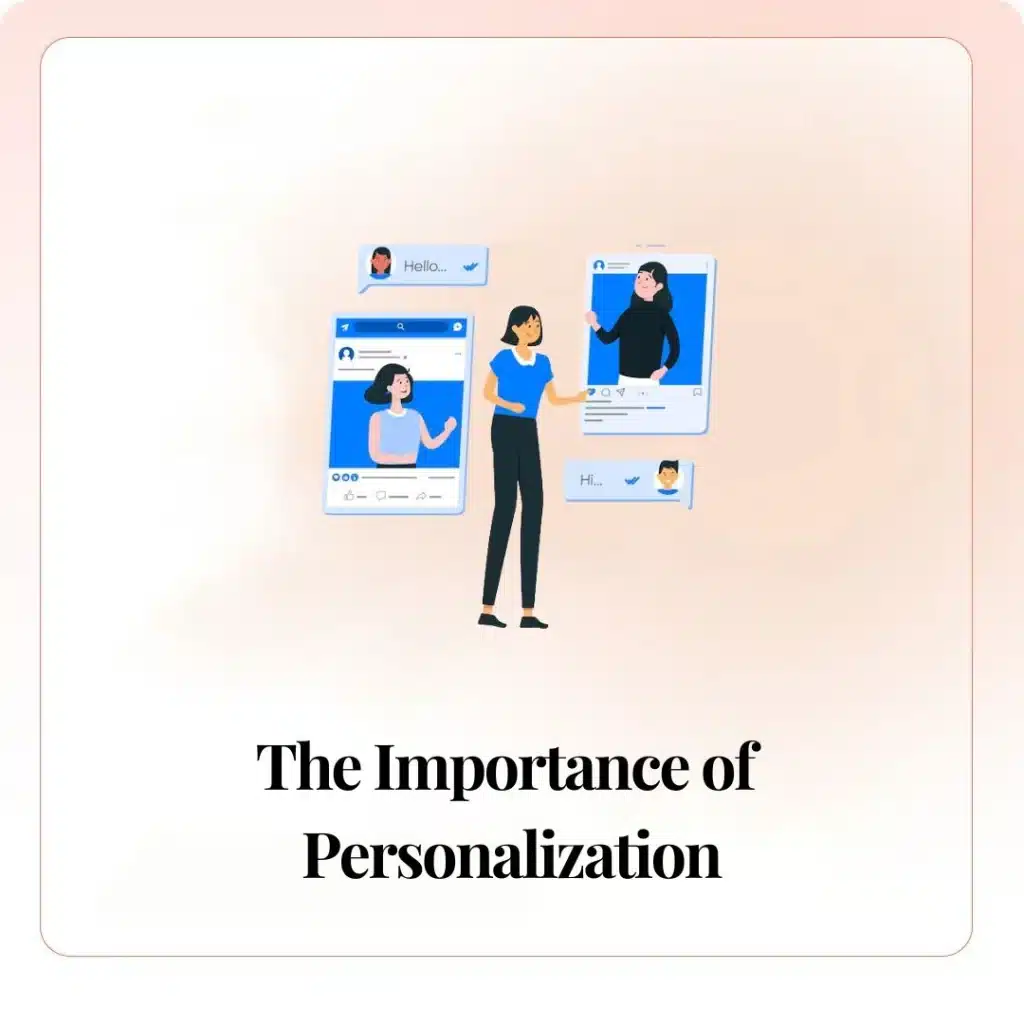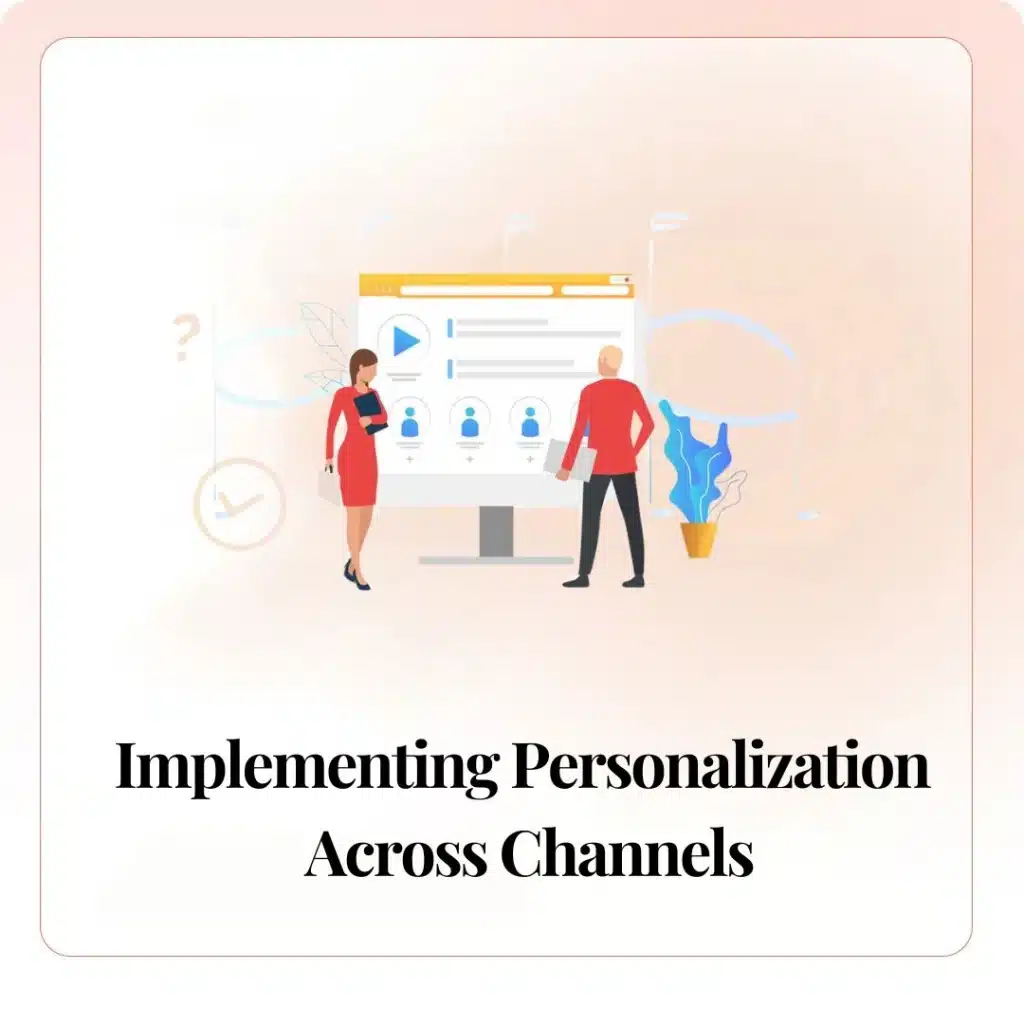In today’s competitive digital landscape, personalization is no longer just an option—it’s a necessity. By tailoring marketing strategies to individual preferences, businesses can significantly enhance user engagement and conversion rates. In this article, we will explore the various aspects of personalization in digital marketing and how it can drive success for the best digital marketing companies in Bangalore.
The Importance of Personalization
Personalization in digital marketing involves creating customized experiences for users based on their preferences, behavior, and interactions. This approach can help the top digital marketing companies in Bangalore stand out by delivering relevant content that resonates with their target audience. Personalization can be applied across various marketing channels, including email campaigns, social media marketing, and online advertisements.

Key Personalization Strategies in Digital Marketing

Segmentation Segmentation divides your audience into groups based on demographics, behavior, or purchase history, allowing for targeted messaging. Leading digital marketing companies in Bangalore, for instance, use advanced CRM tools to create detailed customer segments.
Dynamic Content Dynamic content adapts based on the user’s behavior or preferences, including personalized recommendations and customized email content. This ensures every customer interaction is relevant and engaging.
Behavioral Targeting Behavioral targeting tracks user actions on your site to deliver personalized messages, such as retargeting ads for viewed products or emails with tailored discounts based on browsing history.
Implementing Personalization Across Channels
Email Marketing Email marketing excels in personalization by using data like past purchases and browsing behavior to send targeted emails. Top digital marketing agencies in Bangalore utilize these strategies to enhance engagement and conversions.
Social Media Marketing Social media platforms enable highly personalized ads through robust targeting based on user data. This precision targeting boosts the relevance and effectiveness of your ads.
Website Personalization Website personalization customizes the user experience with individualized content, product recommendations, and dynamic landing pages. This tailored approach enhances engagement and drives conversions.

The Future of Personalization in Digital Marketing

As technology continues to advance, the possibilities for personalization in digital marketing are expanding. Artificial intelligence (AI) and machine learning (ML) are playing increasingly important roles in enabling more sophisticated and scalable personalization strategies. These technologies allow marketers to analyze vast amounts of data and deliver highly personalized experiences in real-time.
AI and Machine Learning AI and ML revolutionize personalization by analyzing user data to forecast behaviors and preferences, allowing for more tailored marketing. For example, AI chatbots offer personalized support and recommendations in real-time.
Predictive Analytics Predictive analytics uses data, algorithms, and ML to forecast future outcomes based on historical trends, helping marketers anticipate customer needs and refine their strategies.
Overcoming Challenges in Personalization
Despite its benefits, implementing personalization in digital marketing can present several challenges. These include data privacy concerns, technological limitations, and the need for significant resources and expertise. However, by addressing these challenges head-on, companies can unlock the full potential of personalization.

Data Privacy
With data privacy laws like GDPR, marketers must be transparent about data collection and usage. Gaining explicit consent and offering opt-out options are essential.
Technological Integration
Effective personalization relies on integrating diverse technologies and data sources. Though complex and resource-intensive, it’s vital for a seamless customer experience.
Resource Allocation
Personalization demands substantial resources—time, expertise, and budget. Companies need to invest in tools and talent to implement and sustain personalized marketing effectively.
Conclusion
In the competitive world of digital marketing, personalization is no longer a luxury—it’s a necessity. By delivering tailored experiences that resonate with individual customers, companies can drive engagement, increase conversions, and build lasting relationships. Whether you’re leveraging email marketing, social media, or website personalization, the key to success lies in understanding your audience and using data-driven insights to deliver relevant and engaging content. For more insights and tips on effective digital marketing strategies, visit the Top digital marketing companies in Bangalore.

